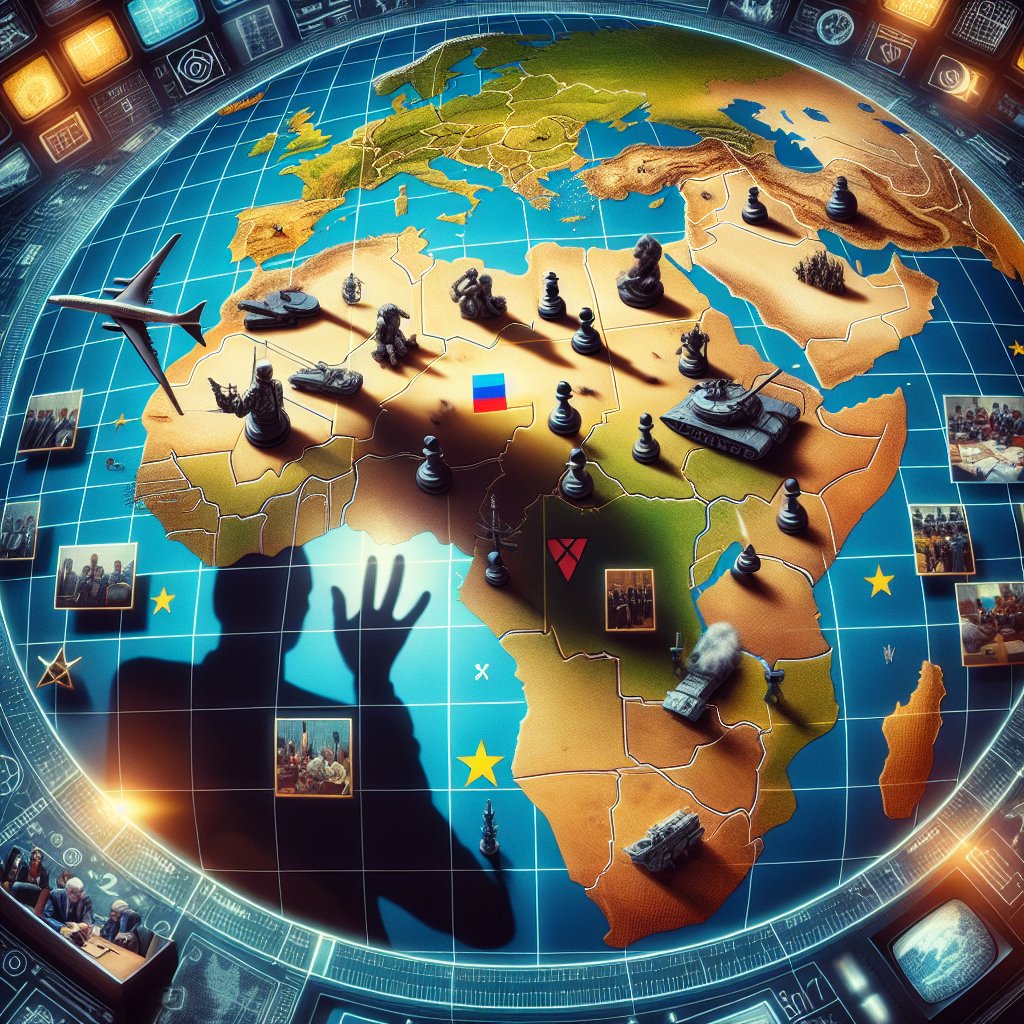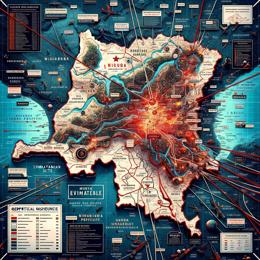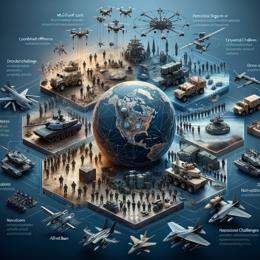Image created by AI
The Rising Stakes in Africa: Russia and Ukraine's Proxy Conflict on the Continent
Africa is increasingly becoming a chessboard for global geopolitics, with recent developments signaling a potential proxy war scenario between Russia and Ukraine. As the world's eyes are trained on the direct conflict between the two nations, their strategic maneuvers in Africa are drawing serious attention.
The engagement of Russian mercenaries, notably from the Wagner Group now branded Africa Corps, in Mali, highlights an ongoing quest for influence. However, a startling clash in Tinzaouaten, Mali, where Wagner fighters and Malian troops suffered severe losses to Tuareg separatists and jihadists, could be a telling scene-setter. Despite this defeat, Russia's shadowy presence in Africa is expanding, capitalizing on voids left by the West, notably the United States' withdrawal from Niger.
Further illustrating Moscow's reach, attempts by the US security company Bancroft Global Development to establish a position in Bangui were thwarted by Russian operatives, evidencing the Central African Republic as a perceived client state of Russia.
Russia's foothold in Libya presents another strategic front. Despite a cooled conflict, thousands of Wagner troops reportedly remain in place, with Russian military assets continually flowing into eastern Libya. This presence underscores the dual interests in not just Libyan stability, but control over broader access to the African continent, especially the Sahel region.
Yet, the battle for influence isn't only being fought with troops on the ground but also in the media. Russia's state-owned television network RT is waging a soft power campaign across Africa, aligning itself with liberation heroes and anti-colonial narratives. However, the network's effectiveness is in question, particularly after its widespread removal post-Ukraine invasion, and its continued operation seemingly via Chinese proxies.
Critics point out the incongruity of Russia as an anti-colonial proponent, while simultaneously extending its neo-colonial grasp over the continent. Despite skepticism, some experts posit that Russia's anti-Western colonialism rhetoric could potentially boost its soft power credentials over time.
Ukraine isn't sitting idle. With new embassies opening in Africa, it aims not just to strengthen relations but to counter Russian narratives and influence. Kyiv has first-hand experience dealing with Wagner and is translating this to support partners like the Tuareg separatists.
Amid these dynamics, accusations have flown with Mali cutting ties with Ukraine, alleging its support for terrorism, a claim Ukraine staunchly denies. The severing of these diplomatic relationships comes at a delicate time with far-reaching implications if the Russia-Ukraine conflict indeed deepens its roots in African soil.
There are concerns about the continent being further embroiled in international geopolitical conflicts, a situation that neither the Economic Community of West African States nor the African Union has robustly addressed.
Ukraine's tactical efforts, paralleling its efforts in Sudan against Wagner-aligned forces, suggest a covert approach to countering Russian influence. Despite setbacks, experts caution against underestimating Russia, forewarning its capacity to rebound and sustain influence in African affairs, leveraging crises and engaging with state actors seeking alternatives to Western partners.
In conclusion, with Wagner's presence under scrutiny and Russia's adaptive strategies, alongside Ukraine's burgeoning diplomatic and special operations outreach, the shifts on Africa’s geopolitical landscape are with serious consequences. The continent may well become a significant front in the broader tussle for global dominance between these conflicting powers.










